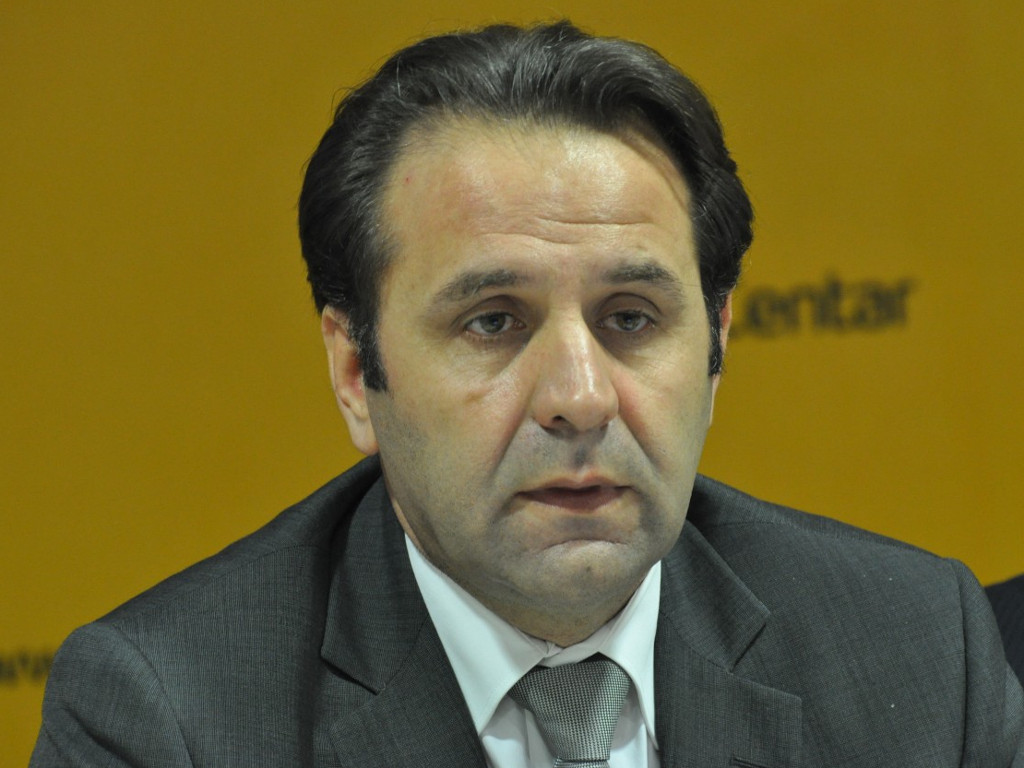LJAJIC: Serbia to propose changes to voting process in CEFTA
Rasim Ljajic (Photo: Mc.rs)

The minister estimates that the Central European Free Trade Agreement (CEFTA) has reached its maximum and that it needs to be changed so as to facilitate the trade between the countries of the region. The aim of the proposition of the Serbian side, Ljajic says, is to avoid the current practice of one country's blocking another in voting on important agreements.
He explains that all the countries of the region that are CEFTA members together have a share of export in the GDP in the amount of 26%, and that Serbia participates the most, around 40%.
Ljajic illustrates the problems in this organization with the example that the there are 21 customs barriers between Belgrade and Pristina alone and that the manner of solving disputes in the CEFTA needs to be changed to the benefit of the traffic of goods and services.
– The CEFTA has reached its maximum and needs to go a step further to facilitate the trade between the citizens or the organization will begin to stagnate. The manner of resolving disputes needs to be changed as well and we will discuss this at the panels in Belgrade – Ljajic says.
He explains that all the members of CEFTA support Belgrade's position in principle, but that the agreement on the voting procedure needs to be changed, made concrete and put in writing.
– There is no other way for the economic development of the region to be achieved aside from joining the markets towards third countries. We need to let politics go. The economy cannot wait for the politics to harmonize – Ljajic notes.
No country with under 10 million citizens can develop economically if its exports make up less than 50% of the GDP, Ljajic points out.
The data of the World Trade Organization (WTO) also show that the export between all the CEFTA countries has grown by 75% since ten years ago, when the agreement was signed – Ljajic told Tanjug.
The CEFTA Week takes place from November 21 through 24 in Belgrade, and the ministers of trade from the region and economic experts will talk at the panels in order for a decision to be made as to how the organization should function in the future and how to solve the current disputes among the members.
Companies:
 Ministarstvo turizma i omladine Republike Srbije
Ministarstvo turizma i omladine Republike Srbije
 World Trade Organization Geneva
World Trade Organization Geneva
 Cefta Secretariat Brussels
Cefta Secretariat Brussels
Tags:
World Trade Organization
WTO
Central European Free Trade Agreement
CEFTA
CEFTA Week Belgrade
regional CEFTA forum
CEFTA voting process
voting in CEFTA
customs barriers
export from Serbia
import to Serbia
Rasim Ljajic
change of CEFTA voting process
Comments
Your comment
Most Important News
Full information is available only to commercial users-subscribers and it is necessary to log in.
Follow the news, tenders, grants, legal regulations and reports on our portal.
Registracija na eKapiji vam omogućava pristup potpunim informacijama i dnevnom biltenu
Naš dnevni ekonomski bilten će stizati na vašu mejl adresu krajem svakog radnog dana. Bilteni su personalizovani prema interesovanjima svakog korisnika zasebno,
uz konsultacije sa našim ekspertima.


 Izdanje Srbija
Izdanje Srbija Serbische Ausgabe
Serbische Ausgabe Izdanje BiH
Izdanje BiH Izdanje Crna Gora
Izdanje Crna Gora


 News
News







